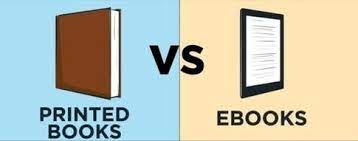Lindsay Richardson, Art & Design
Blog 1
Opinion

There are many methods of learning/obtaining knowledge. Reading books are defiantly the most notorious, but the most gatekept form of education. Until the twenty-first century, millions of books were written, published, bought, and read by the world. The internet, however, took books and turned them into an online activity, like everything else at the time. This massive adjustment from hard-cover media to digital media changed how people perceive reading. The internet surprisingly made reading hard-cover books more “classier” than reading online. However, how is reading from the internet different than reading hard-cover books?
I do most of my reading online. Sad enough to say, I do not think I have read a hard-cover book in years. Every time I try to get myself to sit down and read a fiction hard-cover book, I end up getting distracted and ditching that idea until I attempt to read a couple of weeks later. However, I have no issue reading information online, from a five-minute article on current events/ pop culture to a 500-word fiction book. In fact, seventy-six percent of reading is done on e-readers, digital libraries or purchased on the internet. Most of these e-readers are the younger generation, like millennials and gen z. The older generation who are more familiar with hard-cover books are calling reading from the internet the “easy way out” and criticizing the ones who do use the internet as a source.

Baby boomers may be right about some criticisms on e-reading. To be fair, getting a known reliable source on the internet right off the gate is frankly unheard of. Grade school students are not reading as much as they should be. The copyright laws are not as strictly monitored online, with books being pirated or just the copyright being flat out stolen. It is also sad to see authors struggling to produce content since people can just look up any information at the tip of their fingertips. All these issues though should not be reasonings as to why reading on the internet is any different than the old-fashioned way. If the reader is getting their information reliably, it is just as credible as getting information from a book. Honestly, if authors catered to digital publishing rather than the hard cover publishing, I think that producing books would not be such an issue. Writers can produce the same product for the same price, without the extra cost of having to go through a publishing company or chopping down a couple trees. Most authors who publish online are self-publishing. There is a range of accessibility now with digital media, and especially digital libraries. Most people own some sort of electronic device, but it is harder to find a mode of transport to get to libraries.
This also might just me being nitpicky, but there is also an increase in self-absorbency when it comes to people who read hard books. I have noticed people tend to gatekeep hard-cover books from the majority who reads digitally. These types of people are like the fans of 80’s rock bands, who are the experts in gatekeeping of any type of material. I distinctly remember one of my classmates openly judging me for reading the same book they were reading, but my version was on my laptop. Am I missing something about why hard-cover books are so incredible? It might just be my lack of attention span of holding something in my hands, or maybe it’s my generation’s fault for getting hooked on the internet at an immature age. Either way, reading is such a luxury and it should not be an issue no matter which way you choose.


I strongly agree on the final statement you made, I included it in my post as well. It doesn’t matter how you read whether its a physical copy or an e-book, as long as the story gets shared. Well done!
LikeLike